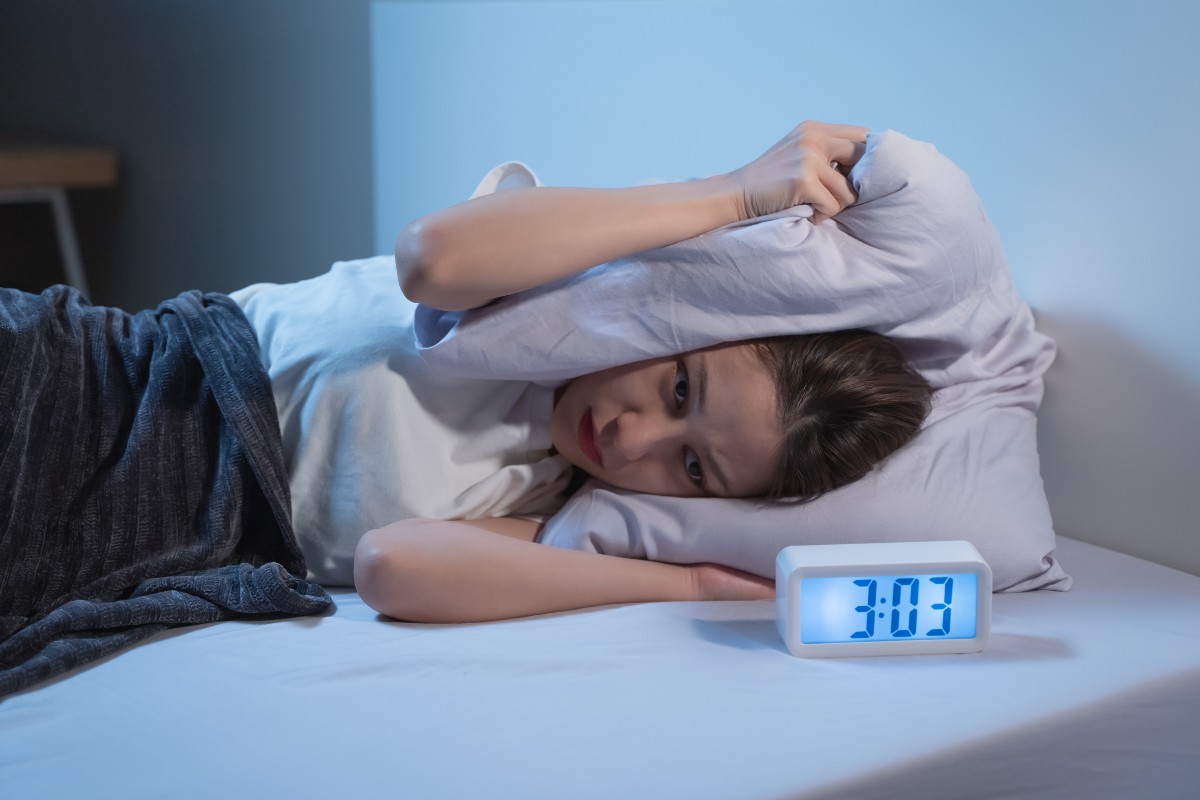
99 Reasons Why You Can't Sleep
We all struggle to sleep sometimes. Whether it’s the stress of the day going around our heads, our partner snoring their head off next to us or suddenly remembering that time we called the teacher ‘mum’, laying awake watching the clock tick by is familiar to many Brits.
So much so that 5400 searches for “why can’t I sleep” are made on Google every month. Unfortunately, there are plenty of reasons why we can’t drift off. Everything from serious medical conditions to barking dogs down the road can keep us awake. With that in mind, we wanted to understand what’s keeping Brits up at night. Spoiler alert… it’s a lot! We’ve researched hundreds of reasons why we can’t sleep, including speaking with our resident sleep expert Dr Sophie Bostock to help advise on the Top 21 reasons and outlined some of the most prevalent below.
The Top 21 Reasons You Can’t Sleep According to Google Search – and how to combat them
1. Afraid of the Dark
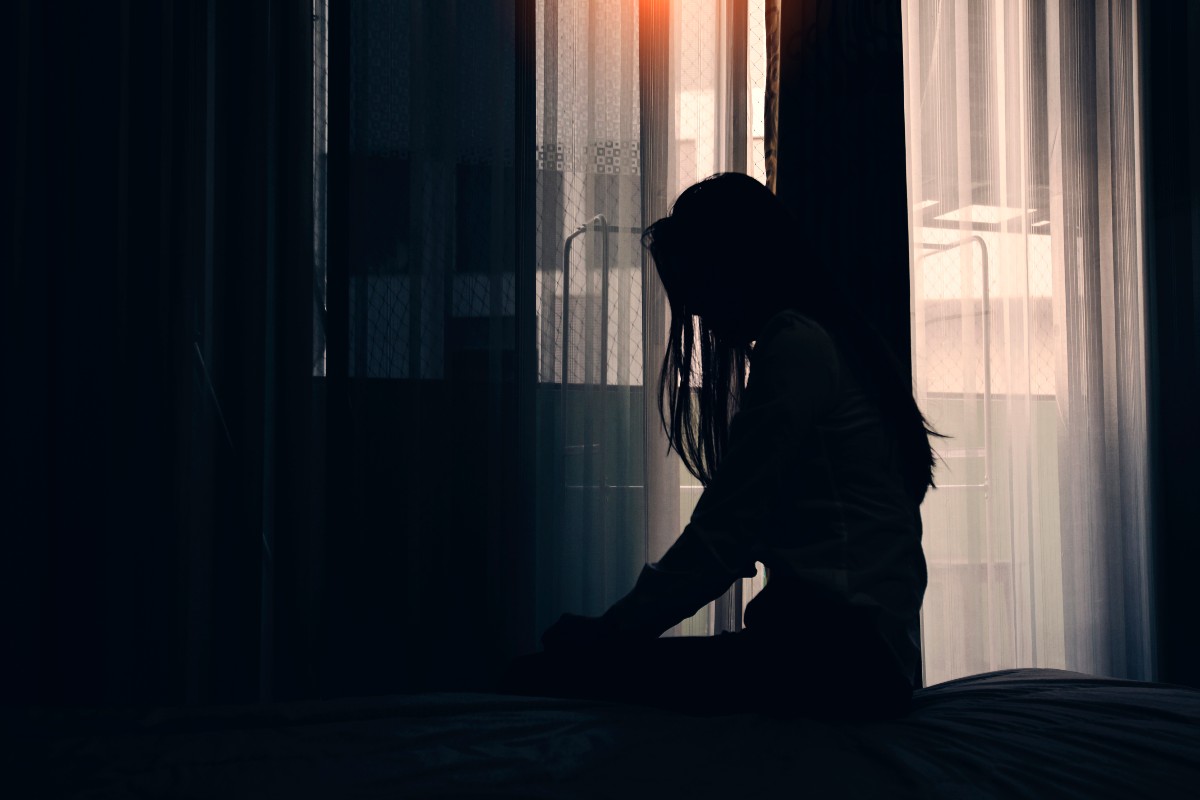
Fear of the dark can relate to primal instincts; we're more at risk and vulnerable when we can't see our full surroundings. Toddlers often develop night time fears as their imaginations develop but if a new fear of the dark develops in older children or adults, it could be linked to another source of anxiety. Slow, mindful breathing at night can promote feelings of calm. Talking about what is worrying you during the day with a trusted friend or therapist may also help.
2. Dog or Cat sharing the bed
Cats and dogs don’t share human sleep patterns. They will naturally wake up and move around more frequently and at different times to us. If your four legged friend wakes up when your sleep is in a light stage, they will probably wake you up too. Fur can also be an allergen which could disrupt breathing during sleep. Some people cite a sense of security when their pets keep them company, but co-sleeping with an animal is likely to disrupt your sleep quality. If possible, keep pets out of the bedroom, or at least in their own bed.
3. Christmas Eve
It’s not just children who can’t get to sleep on Christmas Eve. The anticipation of one of the biggest days of the year is exciting, but can also be stressful. If you find yourself writing to-do lists in your head, switch on the light and make sure all the important ‘must dos’ are written down. Then reassure your mind that it’s safe to switch off. If you find yourself trying hard to get to sleep, remind yourself that no-one ever fell asleep faster by putting in more effort. Turn out the lights but gently keep your eyes open and tell yourself you are warm and safe in your bed. If your brain needed to sleep, it would sleep, you can just enjoy the sensation resting.
4. ADHD
ADHD is often characterised by a difficulty falling asleep, and more restless sleep during the night. This can be due to a ‘night owl’ chronotype, a mind that won’t switch off, sensory overload, difficulties sticking to a routine or even stimulant medication. Lack of sleep can make many of the symptoms of ADHD worse, such as inability to focus, impulsivity, emotional dysregulation and restlessness.
Positively, not everyone with ADHD has difficulty sleeping - it is not inevitable, and sleep disorders are always treatable. Start with a consistent wake up time and getting plenty of bright light in the morning. Experiment to find your preferred way of winding down before bed. This may mean avoiding screens. Some people find a weighted blanket helpful. Speak to your healthcare provider if you’re concerned about sleep.
5. Women not being able to sleep
If you look at any survey of self-reported sleep quality, women tend to report more disrupted sleep and higher rates of insomnia than men. Rapid changes in sex hormones tend to be associated with poor sleep. This can affect women on a monthly basis, before menstruation, as well as during puberty, pregnancy and menopause. Hormonal changes can act as a stressor on the body, activating increased levels of cortisol, and interfering with our ability to relax. Mind-body practices such as mindfulness, gentle yoga and slow breathwork can help to activate the ‘rest or digest’ parasympathetic nervous system, calming the body and mind for a more restful sleep.
6. Financial worries
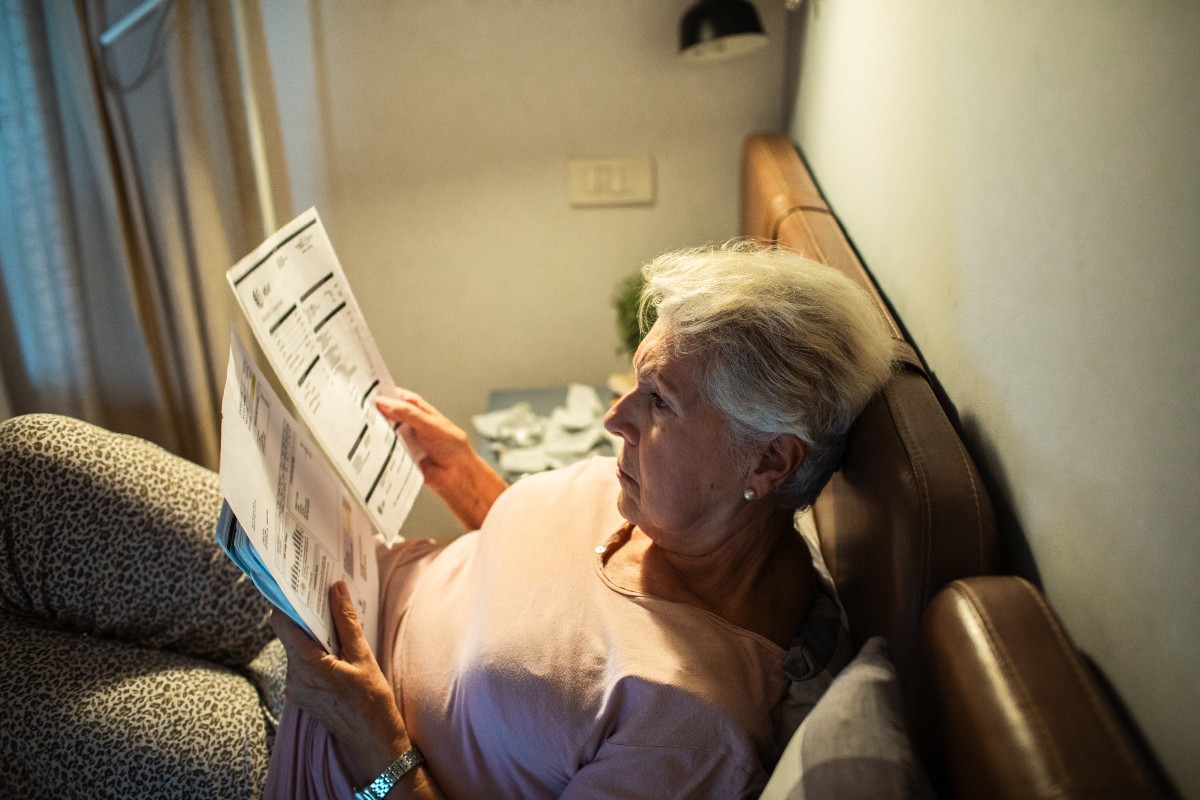
Worries such as financial pressures can really play on our minds, particularly as we climb into bed. If you find yourself ruminating on specific worries, try to spend 15 minutes each day writing down what is worrying you. Create an action plan for those items which are in your control, and tackle one action each day. Put a line through any items that are not in your control. It’s also a good idea to pause before you make important financial decisions and make sure you undertake them where possible when you’re well rested.
If you are losing sleep due to your finances, some organisations can help like the Money Advice Service or Citizens Advice.
7. Menopause
Sleep problems such as fragmented sleep and night sweats are very common for women going through menopause and can have a huge impact on their quality of life. Research suggests that more than half of women notice disrupted sleep during perimenopause, or during the menopausal transition. Things like regular exercise, staying hydrated and having a cool sleep environment can all help. The number one treatment for insomnia symptoms during menopause is Cognitive Behavioural Therapy for Insomnia.
8. Partner snoring
Snoring can be worsened by alcohol, allergies, colds, being over tired and lying on your back. While snoring often has a worse impact on a bed partner than the snorer themselves, (they are oblivious!), there is an important exception. If you hear your partner pause their breathing, and then gasp or choke for breath, this can be a sign of obstructive sleep apnoea (OSA). Other symptoms to look out for are loud snoring, feeling extremely sleepy during the day, and high blood pressure. Request a test for OSA if you’re concerned. Approaches to reduce snoring and OSA include weight loss, regular exercise, wearing a mandibular advancement device (like a gumshield), and nasal dilation strips to encourage nasal breathing rather than mouth breathing. The gold standard treatment for OSA is CPAP, or continuous positive airway pressure, but there are many other options.
9. Caffeine
Caffeine is the most widely consumed drug in the world. It typically takes 30-45 minutes for the alerting effects of caffeine in a drink to peak. Coffee consumed too close to bedtime can increase the time taken to fall asleep, and shift us out of deep sleep, and make sleep less restorative. Everyone has a different sensitivity to caffeine. Recent research suggests that, on average, the caffeine in a cup of coffee could interfere with sleep quality if consumed less than 8.8 hours before bed. This suggests that for most of us, a mid-morning cuppa is fine, but not an espresso after dinner.
10. The weather
Whether it’s being too hot in the summer, too cold in the winter or a noisy thunderstorm, Mother Nature can play havoc with our sleep. For most of us, heat is more of a problem than cold. The body needs to call by approximately 1 degree centigrade to get into the deeper stages of sleep. If you have a tendency to overheat, consider keeping a window open or use a fan to keep air circulating. You could try a lighter tog duvet, or a mattress designed with cooling properties.
11. Thinking about a sporting event

Whether you’re running a half marathon the next day, or gearing up to watch your football team in a big final, adrenalin can run high before, and after, sporting events. If you feel as though your mind is too active to switch off, rather than getting frustrated, you could try distracting yourself with some positive visual imagery. The goal is to take the mind to a place of safety, and contentment. For example, immerse yourself in your favourite holiday destination, or take a walk through all the rooms of your ideal home. Ask yourself: what can you see? What can you hear? What can you touch? What do you smell? How do you feel? If your mind and body feel relaxed, you may find that sleep takes over.
12. New relationship or a breakup
Predictability and routine in the evenings help to sooth our stress response, and help to prepare for a restful sleep. A new relationship is hopefully a hugely positive time, but all the unknowns, the excitement and the spontaneity that it brings often cause disrupted sleep. The end of a relationship, whatever, the cause, can also disrupt our lives and make us feel all at sea. To help yourself get back on track, focus on what you can control, and aim to bring back some consistency. Can you wake up at the same time each day? Can you eat your meals at similar times? Writing a daily journal can also to help us recognise and regulate our thoughts and emotions.
13. Planning a wedding
The pressure of planning a wedding, coupled with pre-wedding nerves, and your normal day-to-day responsibilities can create a sense of overwhelm that interferes with sleep. If you notice yourself feeling stressed or anxious at night, consider a technique to slow your heart rate down. Box breathing involves breathing in for a count of 4, holding that breath for a count of 4, breathing all the way out for a count of 4, and holding for a count of 4. Breathe in through the nose, and out through the nose or mouth. Set a timer for at least 5 minutes and aim to maintain this pattern. Slow, controlled breathing can calm both the body and mind.
14. Birthday eve
We often associate sleep problems with stress, but feeling nervous in anticipation of a big day can have similarly disruptive effects on sleep. Excitement can boost adrenaline, the hormone which readies the body for action. To calm yourself down, you could try some mindful breathing. Take a long slow breath in through your nose and feel your belly rise, to a count of one. Allow the belly to fall, and breathe all the way out to a count of two. Breathe in again for a count of 3. Continue to count your breaths in and out to a count of 10, and then start again at 1. This gentle breathing exercise could be a useful distraction.
15. Sensation of falling
Stage one is the first and lightest stage of sleep. It is defined by the presence of slow eye movements, slower brain activity and a relaxing of muscle tone. This stage of sleep can be easily disrupted causing awakenings or arousals. Sometimes a person in this stage may be awoken by a sensation of falling, or sudden movement, called a hypnic jerk. These are very common and are nothing to worry about if they do not regularly disrupt your sleep. Regular exercise, a good wind-down routine, avoiding sleep deprivation and a regular sleep schedule can alleviate hypnic jerks.
16. Pyjamas
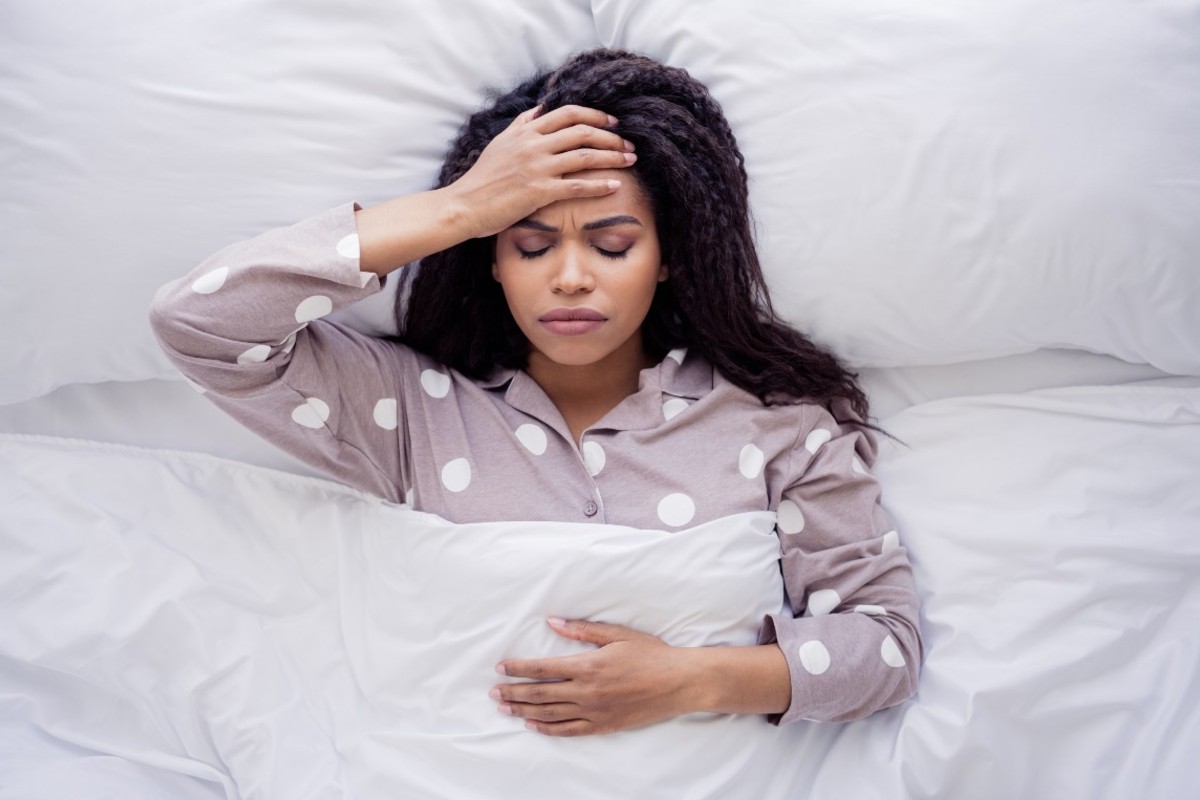
When it comes to PJs, wear something that makes you feel comfortable, or nothing at all. Natural fabrics like cotton and silk are likely to wick moisture away from the skin more effectively than synthetic materials. If we’re too hot, too cold or simply not comfy, we’ll struggle to drift off.
17. Social Media
A recent review found that the light from screens has a negligible effect on sleep, but that phone use before bed can still delay the onset of sleep by an hour - simply because we don’t switch them off! Doom scrolling is real, phones are addictive. Leaving alerts on during the night can also disrupt sleep. Try putting airplane mode on after 9pm if you are reluctant to be separated from your phone, but ideally, charge your phone overnight out of the bedroom, so that it’s out of temptation’s way.
18. Spicy food
For some people, spicy foods can cause indigestion and restless sleep. If you are going out for a meal, choose milder options or eat at least 3 hours before bedtime. If you have an unstoppable desire for a vindaloo, eat it earlier on in the day!
19. Earworms (songs stuck in head)
External noise such as noisy neighbours or a partner snoring can be irritating when you’re trying to sleep, but what about when the sound is in your head?! Songs going round and round in your mind are a common sleep complaint. Consider bringing in another, more soothing sound, to mask the internal noise. This could include white noise, pink noise or a guided sleep hypnosis.
20. Embarrassing moments or mistake
Negative experiences often become the source of ruminating thoughts. If you find yourself re-living painful experiences again and again, try to make time to process those emotions during the day. A daily journaling practice, sharing with a trusted friend, or a regular therapy session could help. Instead of letting negative thoughts hijack your wind down, experiment with focusing on 3 good things. As you switch out the light, reflect on 3 things about the day that you are grateful for.
21. Holiday eve
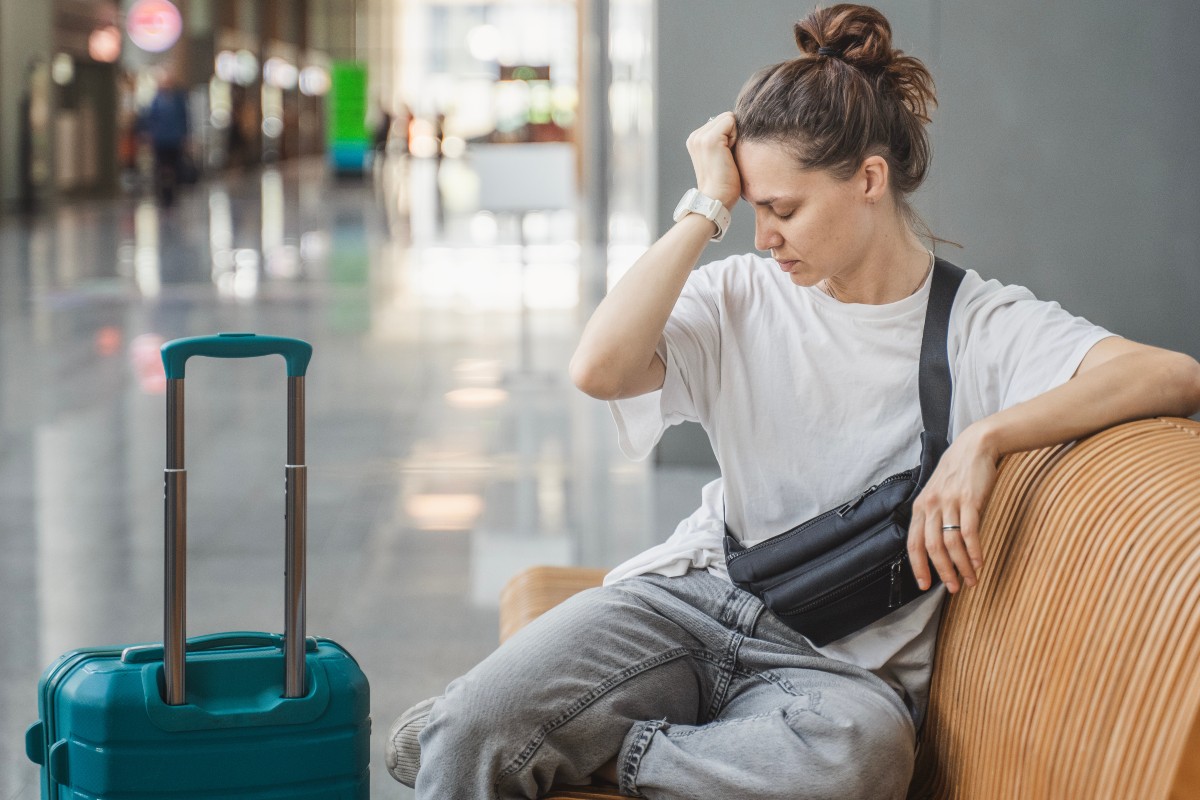
Not only is heading away on holiday exciting but there are also a million things to do before you go. If you can, avoid getting overtired. If you push your usual bedtime back too far, past the point of sleepiness, your body will rely on stress hormones to keep you awake and you could end up missing that early morning alarm clock for the airport. Try and make the night before the holiday as relaxing and run-of-the-mill as you can!
22. Sleep apnea
Worse than just snoring (although that’s a part of it!), obstructive sleep apnea can leave you waking up gasping for air throughout the night. Not good for a restful evening! Speak to a medical professional if you believe you may suffer from sleep apnea.
23. Sleep paralysis
Around 30% of us have experienced the terrifying sensation of waking up unable to move or speak in the middle of the night. (1) Although harmless, sleep paralysis is caused by our brains waking us up between sleep phases, before our limbs have the chance to catch up.
24. Pregnancy
Lots of factors during pregnancy can keep you awake. From increased weight and body changes to disrupted breathing, reflux and simple discomfort. Try switching mattresses or utilising extra pillows and bedding to get comfy during the night.
25. Newborn babies
Although pregnancy can affect your sleep, unfortunately, it might not get any easier after the birth! Some babies sleep better than others but disruptions from night feeds, nappy changes, and restless little ones are to be expected.
26. Parent worry
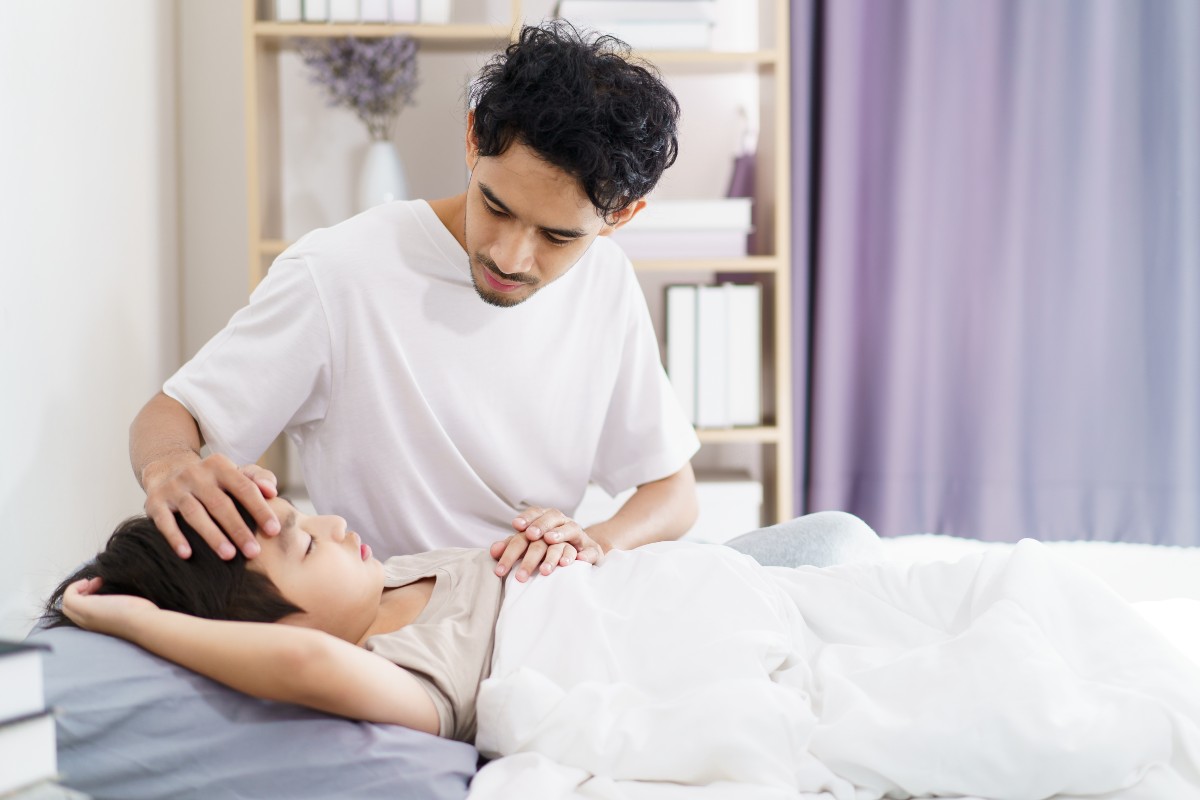
Alongside the physical disruptions, being a parent can be a worrisome experience regardless of your child’s age. Whether it’s their first day of school or they’re off the uni, our kids aren’t far from our thoughts.
27. Depression & anxiety
Mental health issues like depression, anxiety, PTSD and others can all have huge impacts on our sleep, making it difficult to fall or stay asleep. If you feel your mental health is negatively affecting your sleep, it’s important to speak to your GP or a medical professional.
28. Sleepwalking & talking
Whether it’s you or your partner, sleepwalking and talking can take a toll on sleep. And that’s not to mention the confusion you experience when you wake up!
29. Alcohol
Many people have a little tipple before bed believing that it will help them to wind down and fall asleep faster. However, while you may fall asleep faster, alcohol (and drugs) can interfere with sleep so you’re more likely to wake up feeling groggy, tired and irritable.
31. Noise
It may be your snoring partner, horrible winter weather, noisy neighbours, a nearby busy road or even a ticking clock. Whatever it is, noise can impact our sleep in plenty of ways. Keeping your sleep environment as quiet as possible is a must for good rest.
31. Too much light
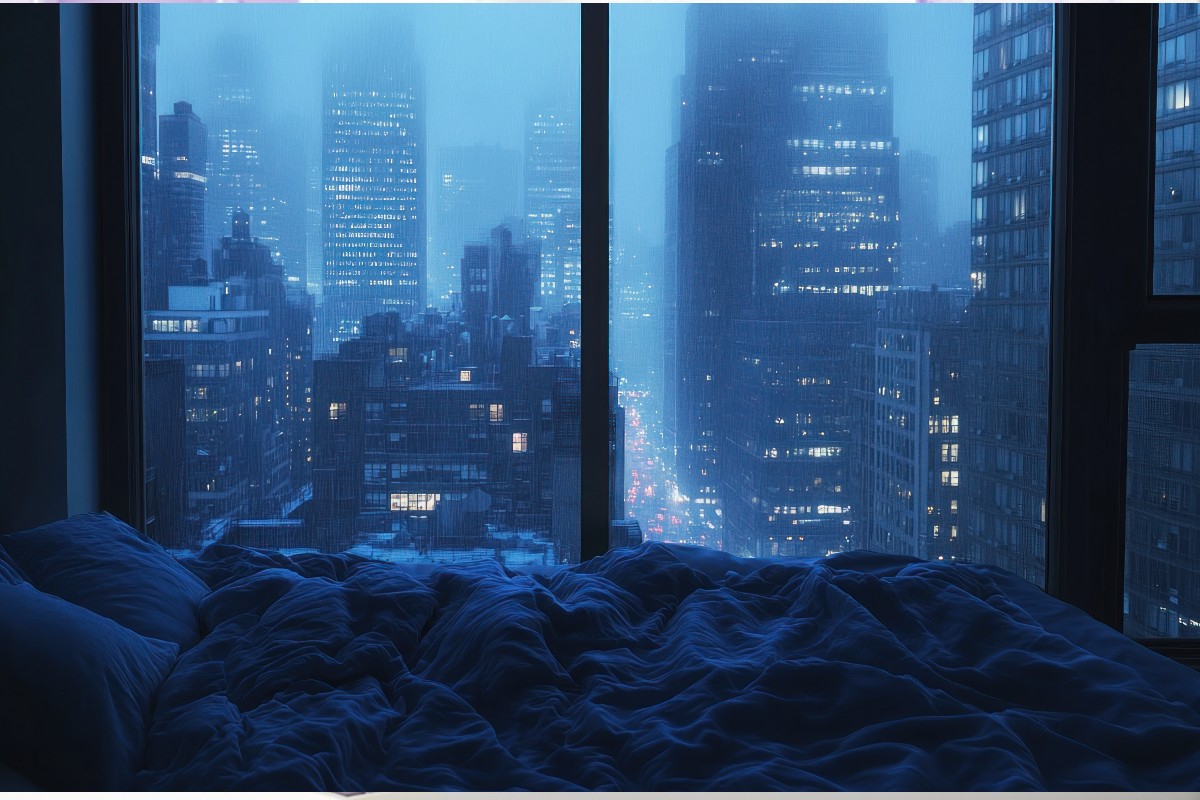
Your curtains might be ajar, the blinds are too thin, there’s a gap in the doorframe or there are LEDs on from devices in your room. Regardless, too much light as you’re trying to drift off is less than ideal.
32. Being a light sleeper
It might be because of genetics or lifestyle factors, but light sleepers tend to have a higher arousal threshold which makes them more sensitive to external factors (2). Keeping your bedroom cool, clean, quiet and dark is essential.
33. Ageing
As we age we have less sleep efficiency, alongside factors such as other health conditions, social isolation and an increased use of medication. All of which can harm our sleep.
34. Medication
Some prescription and OTC medications such as antidepressants, antiseizure drugs, asthma medications, steroids and oral contraceptives can impact our sleep cycles (3). Always take medication as directed and consult a GP if there are any unexpected side effects.
35. A strange bed
We’re all creatures of habit and most of us love our own beds. Sleeping somewhere new such as a hotel, at a friend’s house or even in a hospital can seem strange, and we notice it when we sleep.
36. Sleeping outdoors & camping
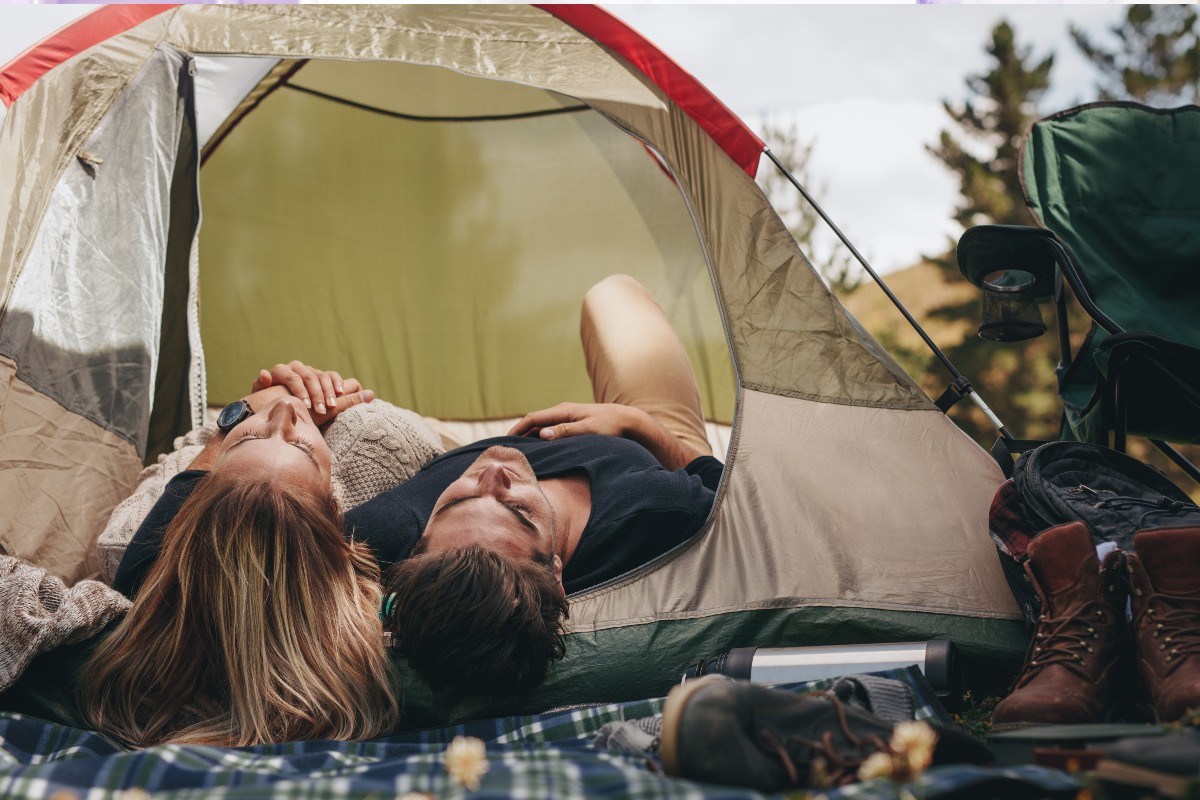
Whether you’re a seasoned camper or a newbie, sleeping in a tent surrounded by noises from the trees, birds and other critters can keep you awake. Even more so if you’re in a sleeping bag on an air mattress.
37. Heartburn & Acid Reflux
Uncomfortable at best, acid reflux (also called gastroesophageal reflux disease or GERD) is when stomach acid flows back up into the tube connecting the mouth and stomach. This may cause a burning feeling in the chest (heartburn), or food and liquid reappearing in the throat. In most cases, lifestyle changes or OTC medicines should reduce the symptoms.
38. Screens in bed
Whether it’s your phone or tablet, or a TV in your bedroom, looking at screens too much before bedtime can impact your body’s natural sleep cycle. Instead of the tech, opt for a book, soothing music or a podcast before bed, if you must.
39. Poor routine
Much like young children, even adults respond well to a consistent bedtime routine, and chaotic schedules can leave us feeling discombobulated. Try and go to bed and wake up at the same time every day, even at the weekend.
40. Poor sleep hygiene
It’s not just a buzzword, good sleep hygiene really makes a difference. Make sure your bedroom is clean, cool and clutter-free. Focusing on yourself, take a relaxing bath or consider some gentle yoga before lights out.
41. Sleeping alone
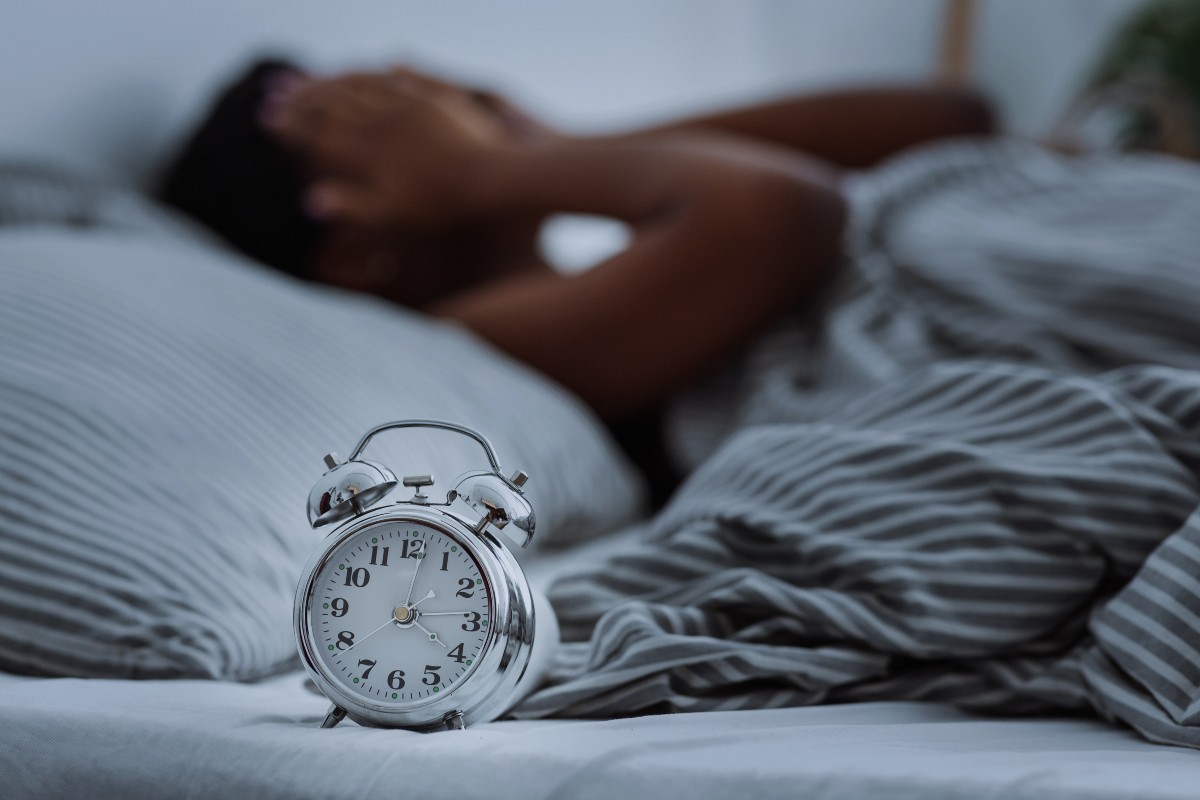
Sleeping next to our partners seems to bring a raft of benefits such as improved sleep duration, more REM sleep and improved mental health (4).
42. Sharing a bed
Yes, despite the last point, sharing the bed with your partner can also harm your sleep. They may snore, toss and turn, have irregular sleep patterns or keep you awake in other ways. It’s all about finding what works for you.
43. Loneliness & social isolation
Loneliness can cause a wide range of physical and mental health issues, and it may also cause insomnia in middle-aged and older adults. Maintaining an active social life may help you sleep better.
44. TV and video games
It’s not just the screen itself, TV shows, films and video games engage and stimulate our brains which can make it harder to drift off at night.
45. Daytime naps
Sometimes we need a little top-up, especially if we work shifts, have young children or have demanding jobs. However, too many naps can keep us awake longer (5). If you do need one, aim for no longer than 30 minutes and not after 3 pm.
46. Not sleeping enough
Strangely, not getting enough sleep can make it harder to get to sleep at night. Even though you’re physically tired, overtiredness can cause changes in mood, restlessness and irritability which keep you awake (6).
47. Too much sugar
Like spicy food and caffeine, too much sugar before bed can keep you up all night. It’s best to avoid sweets, chocolates and lots of fruit in the evenings.
48. Diabetes
Many medical conditions can impact sleep, and diabetes is no exception as changes in blood sugar levels can cause disruption (7). The relationship between diabetes and sleep is complex, so it’s important to discuss any issues and remedies with your doctor.
49. The temperature
A bedroom that is too hot or cold can cause sleep issues. Whether you’re stuffy and uncomfortable or shivering under a thin duvet, it’s important to find the temperature that works for you. Between 16 and 20 degrees works for most people.
50. Jet lag
Famously disruptive to sleep, jet lag can play havoc with our circadian rhythms. If you’re feeling the effects, try and get some sunshine, drink water, and sleep on the plane if possible.
51. Cancer
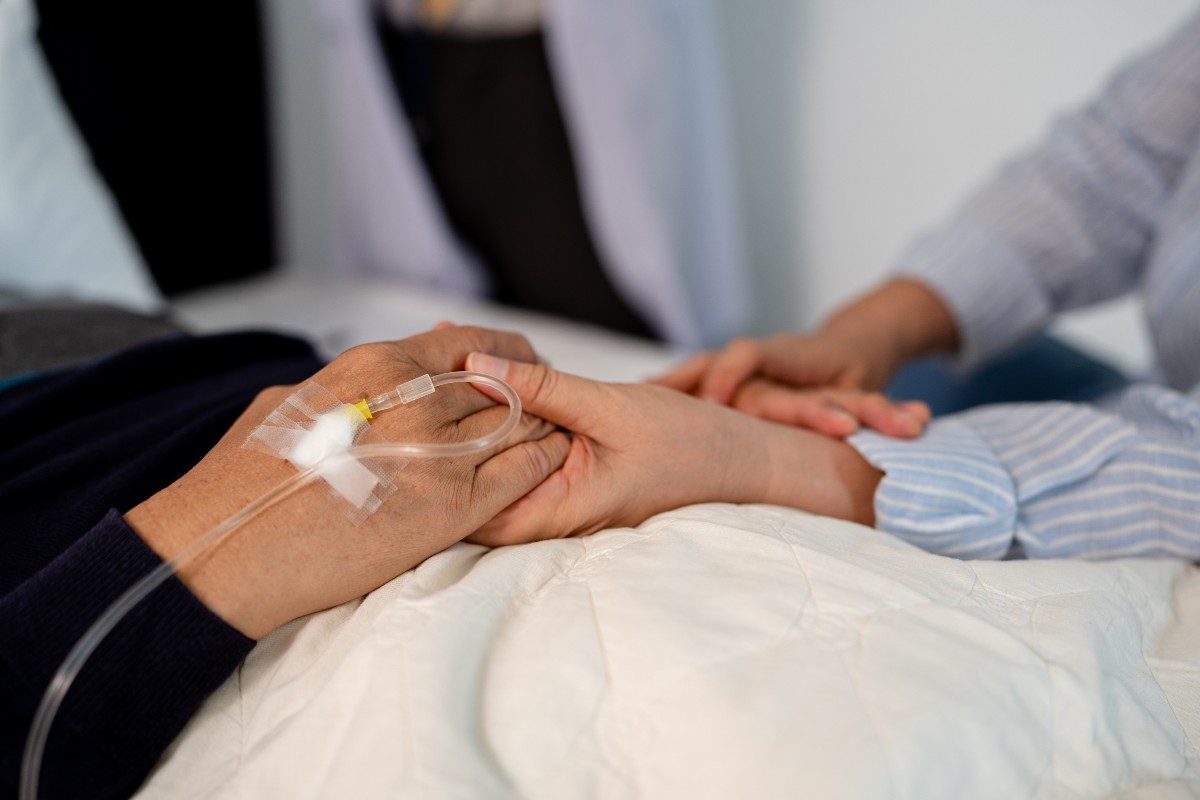
Cancer is a terrible disease, and the worry, physical effects and treatments can all wreak havoc on your sleep (8). Your doctor or consultant may be able to help with any cancer-related insomnia you are experiencing.
52. Hunger
Going to bed hungry is never a good idea as it can keep you awake, or wake you from your slumber during the night. If you do need a late-night snack, choose something healthy like a banana, berries and yoghurt, wholemeal crackers or a handful of nuts.
53. Thirst
Like hunger, thirst will impact your sleep. Make sure you’re well-hydrated with water and take a glass to bed with you during the night. Avoid caffeine, alcohol and sugary drinks, and opt for a fruit tea or calming chamomile to drift off.
54. Too much liquid
If you drink too much, you’ll need the loo more. Simple.
55. Asthma
Asthma sufferers can experience worse symptoms at night, known as Nocturnal Asthma. It’s not fully understood why yet but hormones, allergies and lifestyle factors may all be responsible.
56. Restless Leg Syndrome

Also known as Willis-Ekbom disease, restless leg syndrome causes an overwhelming urge to move the legs, and unfortunately, this can keep us (and our partners) awake.
57. Autism
There are some common traits with people who have autism which might make it more difficult to sleep such as sensory sensitivities or extreme anxiety, and emotional dysregulation. Some people find it beneficial to introduce regular relaxation practices, such as progressive muscle relaxation, or deep diaphragmatic breathing or even things like weighted blankets might help people with Autism sleep better.
Behavioural strategies like these are usually recommended as the first line approach for sleep problems because they are the most effective but if sleep still remains an issue you can speak to your doctor for further help.
58. Overactive thyroid
An overactive thyroid can affect the balance of thyroxine and triiodothyronine which both regulate how the body uses energy, as well as your sleep-wake cycle. Balance is important, and too much of either can cause sleep issues (9).
59. Hypothyroidism
An underactive thyroid can also cause issues related to sleep and other physiological processes. Too little of the required hormones can be as harmful as too much of them.
60. High blood pressure
Hypertension (the medical name for high blood pressure) may make sleep more difficult as the stress on your blood vessels could cause headaches, chest pain, and difficulty breathing. We also know that poor sleep can be a contributing factor to developing high blood pressure - a vicious circle.
61. Barking dogs

We’re a nation of dog lovers but it seems they can keep us awake. Whether it’s our own furry friends downstairs or the neighbour’s howling hound, any noise can impact our sleep.
62. Dementia
People suffering from dementia, including Parkinson’s and Alzheimer’s, may sleep more during the day. This can hinder them from falling asleep at night, and may also mean they wake up more (10).
63. Not enough exercise
Getting regular exercise is important for many reasons, but a lack of physical activity can also keep us awake. Proper exercise can help us fall asleep quicker, as well as feeling more alert during the day.
64. Obesity
Obesity can negatively impact our sleep-wake cycles and metabolism, as well as put extra weight on our necks when we lie down - none of which are conducive to good sleep (11)!
65. Our work and travel schedules
We get it, we all need to make a living, but early starts, late finishes and stressful commutes can stress us out, making it harder to sleep when we get home.
66. Shift work
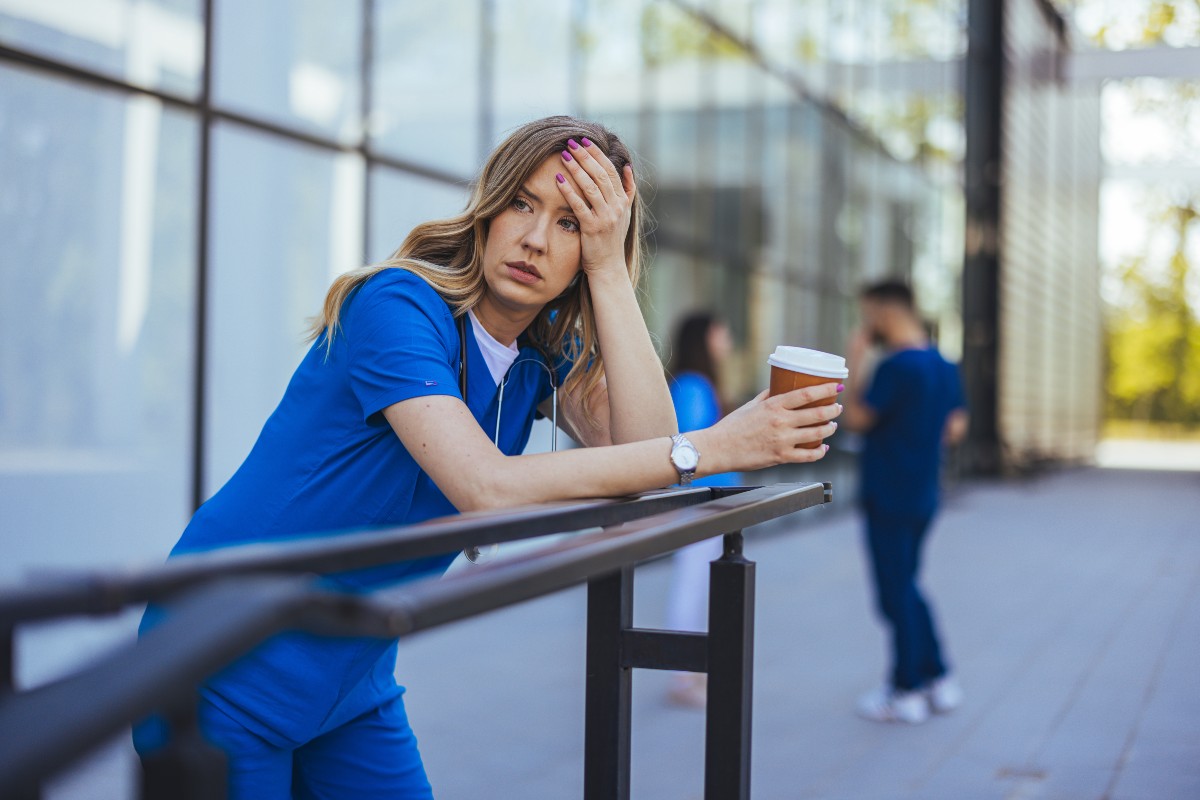
Shift and night workers in particular can really suffer when it comes to sleep, having worse sleep schedules than those who work ‘regular’ hours.
67. Panic attacks
Linked to other mental health conditions like anxiety, panic attacks can come on at night, or even during sleep (12). Although not physically dangerous, they can take an emotional toll and impact our sleep quality.
68. Job security
Linked to financial security, worrying about our jobs, and how we’ll pay the bills, can stress us out and keep us awake at night.
69. A big project or meeting
If we’re working on big projects or have an important meeting planned for the next day, it’s natural that it might play on our minds. If this is the case, embrace good sleep hygiene to give yourself the best chance of a restful night.
70. A job interview
We’ve all been there and know exactly what it feels like.
71. Exams
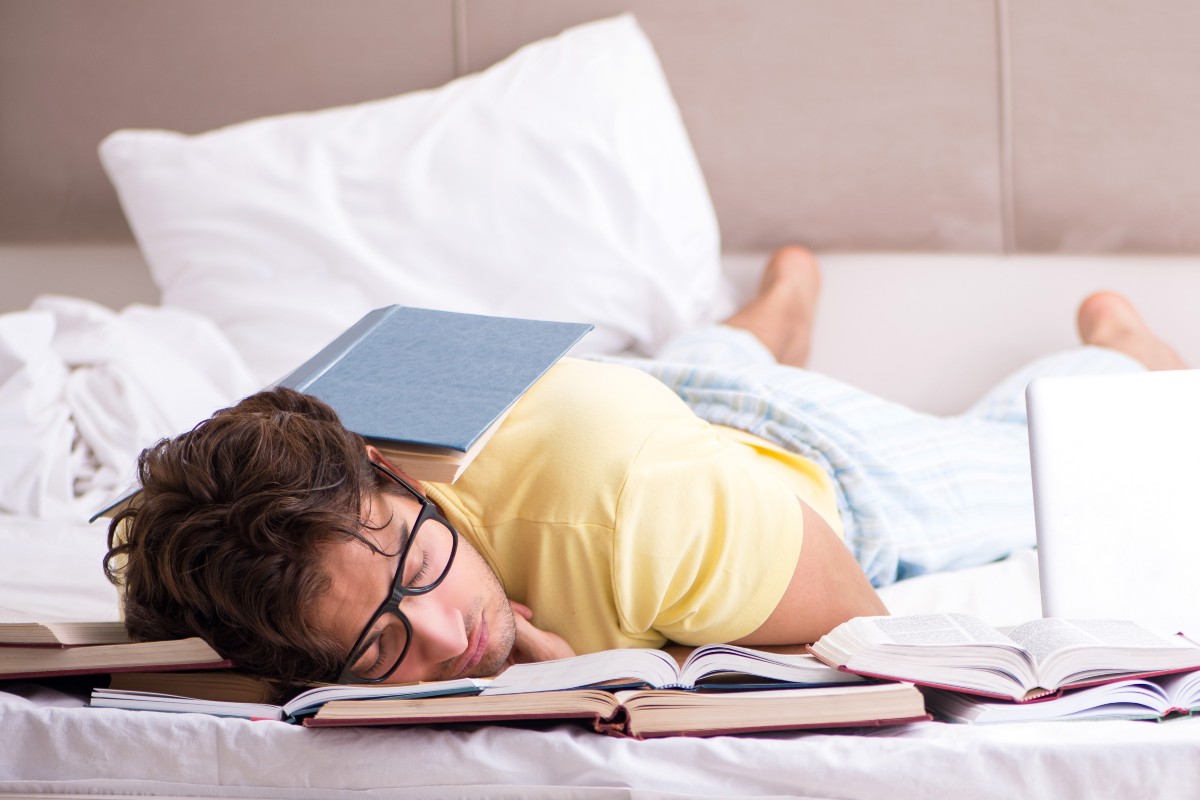
Perhaps something that affects our children more than us, exam stress is real and can cause a range of sleep issues.
72. Grief & bereavement
Losing a loved one is incredibly tough and our sleep will inevitably suffer. The grieving process can be long and difficult. If you’re struggling with the death of a partner, friend or family member, seeking professional help can help you cope.
73. Indigestion
Indigestion can cause a range of issues such as heartburn, gas and an uncomfortable bloated feeling. It’s no wonder it can keep us awake! The best approach is to avoid eating too late and steer clear of food and drinks you know don’t agree with you.
74. Smoking
It’s bad for a whole host of reasons and whether it’s the late-night nicotine craving or the harmful physical effects, your sleep will suffer as well.
75. Sharing a duvet
Whether your partner is stealing it from you during the night or you’d like to have it all yourself, sharing a duvet can wake us up. The solution… the Scandinavian Sleep Method (13). Each person has a separate duvet so there’s no more bickering.
76. An uncomfortable bed or mattress
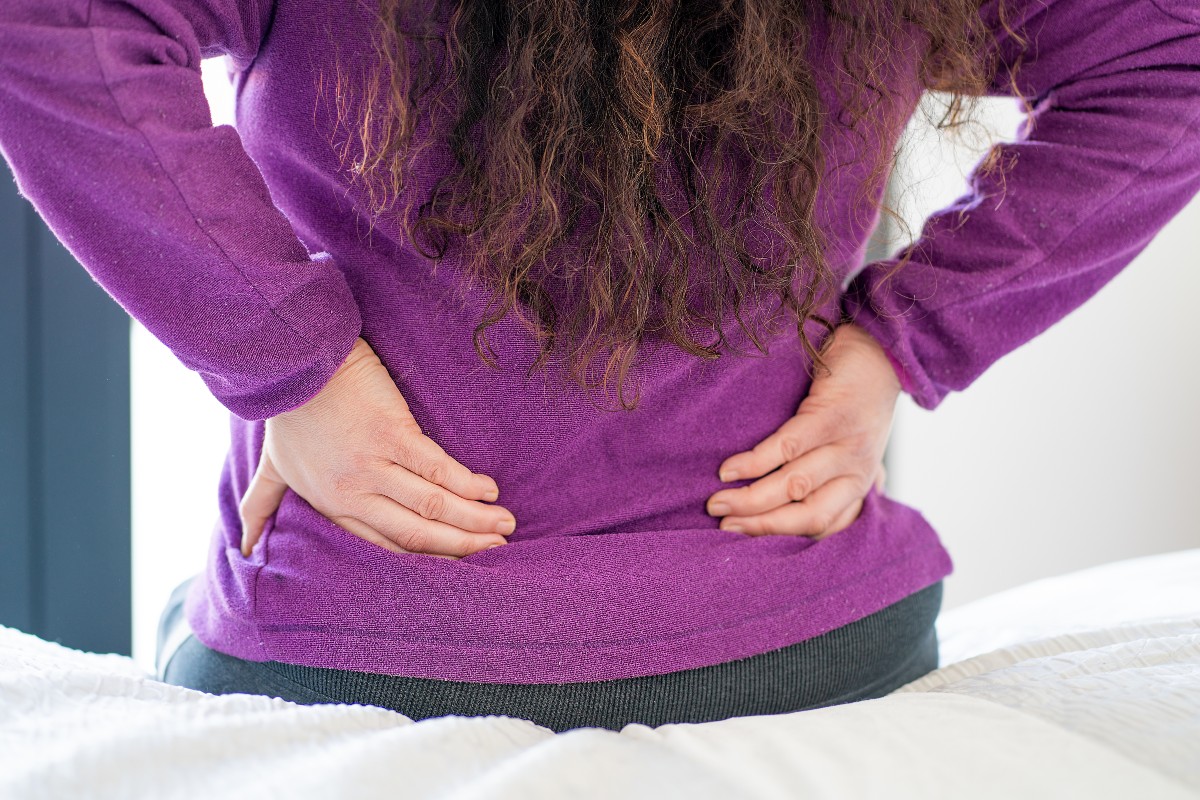
It seems obvious, but too many of us are sleeping on old mattresses that don’t offer enough support, broken bed frames and resting our heads on flat, tired pillows. Investing in a new bed, mattress and bedding will help you drift off into a deep sleep.
77. Being a teenager
Puberty and hormone changes push teenagers into later sleep cycles, meaning they fall asleep and wake up later (14). Unfortunately, these often don’t coincide with early bedtimes and getting up in time for school.
78. Work emails
Having work emails on our phones can tempt us into checking in late at night. Unfortunately, that just brings stress and poor sleep.
79. Work & social burnout
Burnout and sleep have a bi-directional relationship, meaning that they make each other worse. In our modern, always-on world, it’s no wonder that many people complain of poor sleep due to social and employment pressures.
80. Going to bed too early
People think that getting an early night is good for them, and it almost always is, but if you go to bed too early or when you’re not tired, you can end up lying there for hours.
81. Climate change

The rising temperatures driven by climate change are already making it harder for many to sleep, but worrying about the future of the planet can also keep people awake long into the night (15).
82. Arguments
Arguments and disagreements can be stressful, and this can leak into our sleep.
83. Moving house
Moving house is stressful at the best of times, and that’s not to mention the period of settling into your new home.
84. Cluttered bedrooms
Those who have cluttered bedrooms or use their bedroom for anything other than sleeping or intimacy may struggle to fall asleep as well at night.
85. Horror films or scary stories
Horror films, podcasts and novels can keep us awake wondering what that strange shadow or unexpected bump was. You might love the fear, but it may also impact your rest and infiltrate your dreams…
86. Lack of natural light
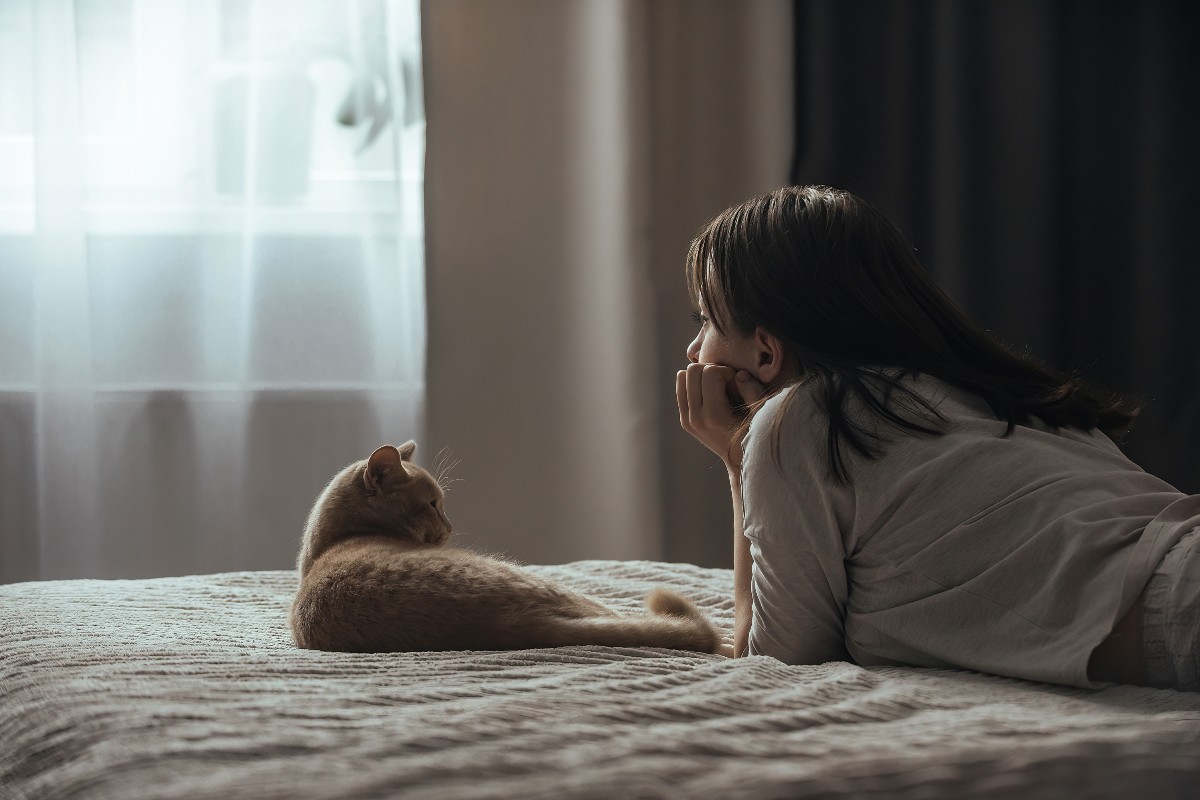
We need sunlight to function, and in the cold, dark, winter months that can be hard to come by. Sunlight impacts your circadian rhythm - and therefore your sleep. Try and spend at least an hour or so outside every day.
87. Bipolar Disorder
Unfortunately, sleep issues are a core symptom of bipolar disorder (16).
88. Nightmares and bad dreams
Some of us get them more than others, but nightmares and bad dreams can wake us from our slumber and stop us from drifting off again.
89. Bathing & showering before bed
Although a soothing bath can relax us, if it’s too hot it can raise our core temperature and stop us from getting a good night’s sleep (17).
90. Seasonal Affective Disorder
Disrupted sleep is a common symptom of SAD. Daytime fatigue, trouble waking up and frequent nightmares can all impact your sleep quality.
91. Allergies

Environmental, seasonal or food allergies are a common cause of sleep disruption.
92. Neuropathy
Tingling, numbness, or pain in the hands and feet can cause you to wake throughout the night (18).
93. Schizophrenia
Up to 80% of Schizophrenia sufferers experience sleep disturbances such as difficulty falling or staying asleep.
94. Social & employment pressures
People working in certain industries or within different cultures may be expected to work long hours, always be available or otherwise miss out on sleep.
95. Substance addiction
People suffering from addiction to substances experience lower-quality sleep and other symptoms of insomnia (19).
96. Genetics

Unfortunately, genetics play a role in whether someone suffers from insomnia or not.
97. Domestic violence & abuse
Victims and survivors of domestic abuse may struggle to sleep properly due to the fear and stress of their situation, as well as the long-term emotional effects (20).
98. Sleeping in late
Sleeping in late, and irregular sleeping patterns in general disrupt your sleep-wake cycle, making it harder to fall asleep at the usual time that night.
99. Big life decisions
While ‘sleeping on it’ is always good advice, big life decisions can weigh on our minds and impact our sleep.
If you’re struggling to drift off at night or wake from your peaceful slumber, don’t forget to head over to our Sleep Hub which’s full of expert tips and advice to improve your sleep quality. And of course, if you fancy freshening up your bed sheets or replacing a tired old bed frame, Bensons for Beds is the place to find exactly what you need.
Sources:

Gemma Henry - Content Lead
Gemma finds sleep fascinating and describes the discovery aspect of her role as eye-opening. Her keen eye for detail and dedication to thorough research ensures that Bensons customers get the informative sleep-based advice they're looking for.